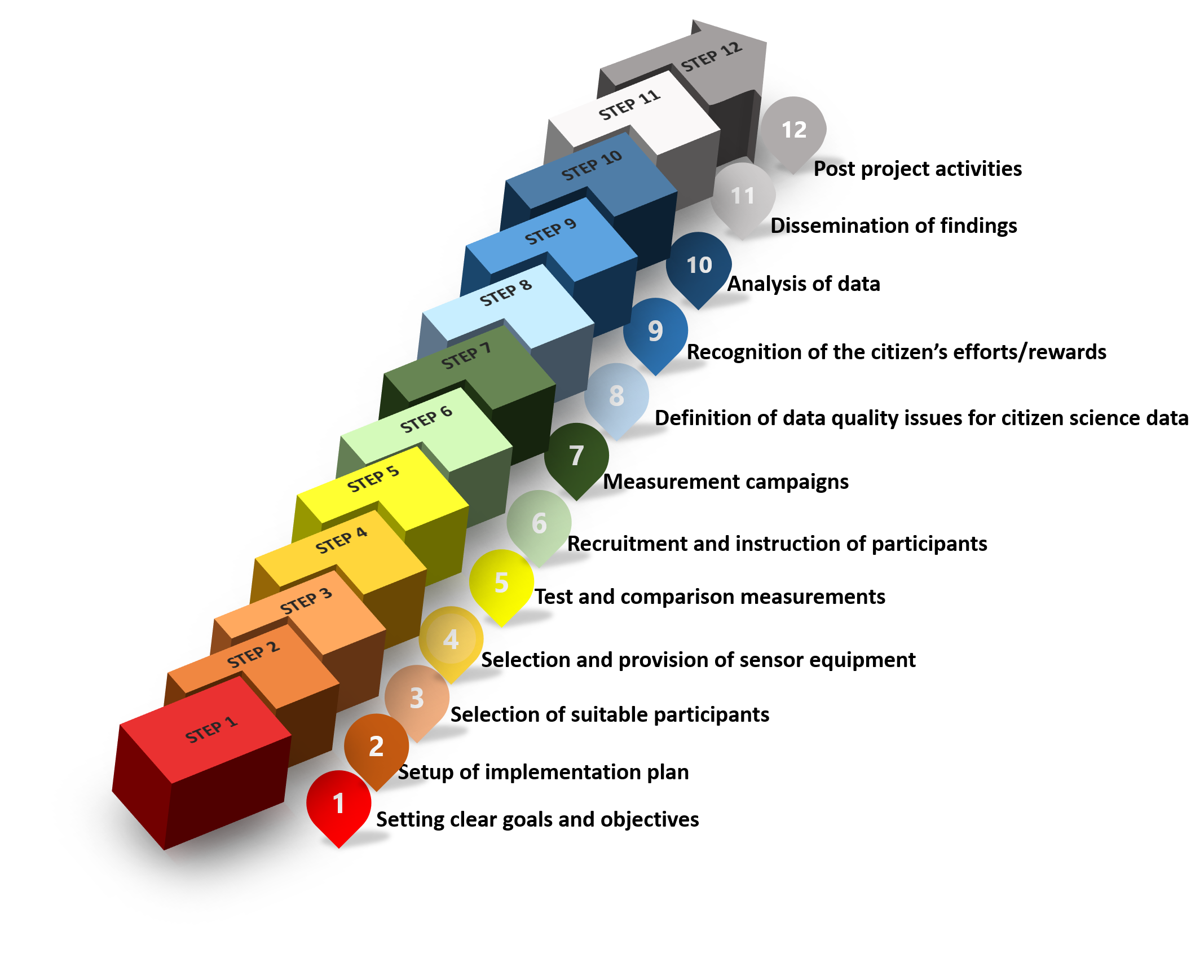Prototype of the Citizens Science Concepts
This prototype of the Citizens Science Concepts describes the planning workflow of citizen science projects, in particular the Standard Operating Procedures (SOPs) for citizen data collection campaigns, which cover 12 different steps from defining the project goal to post-project activities. The SOP for citizen data collection campaigns has been established, focusing on clear goals, activities, expected data, and stakeholder characterization, in collaboration with e.g. pilot cities for CityCLIM project. Each step is explained shortly and questions are defined. These questions will help people planning CS projects to consider all aspects of such pro-jects and incorporate them into their plans. Additionally, the findings of the questionnaire given to participants in the pilot cities are explained and provide credence to a few key workflow points.

- Definition the research question
- Definition of the purpose of the campaign
- Identification of outcomes
- Criteria of success (e.g. KPI’s)
- Stakeholder Identification
- Tasks and responsibilities
- Resources needed
- Timeline
- Workflow for data management, storage, and quality control
- Ways of communication
- Strategy and tools to select suitable citizens and understand their motivations and limitations
- Suitable ways of communication
- Which environmental parameters need to be measured (in acc. with project goals and objectives)?
- Strategy to select appropriate sensors
- What is the manageability of the selected sensors in relation to skills of participants?
- What kind of communication material is needed to allow for an easy-to handle
- Data flow and data management (can the sensor data be uploaded and retrieved)
- Testing under lab conditions (covering the expected range), field conditions (covering a significant range)
- Analysis of test data (does the data provide what is needed for aims)
- Advertisement
- Selection
- Instruction
- Training
- Communication
- Ethical and privacy issues
- Tools to keep motivation high
- Setup of measurements
- Repeated test and comparison measurements (if necessary)
- Accompanying feedback to the participants
- First analysis of data
- Data Management
- Data quality evaluation questions
- Options of data quality
- FAIR principles
- Data quality assurance
- Data governance
- Data scope
- Evaluation of different reward strategies
- Event Planning and press-releases
- Quality evaluation
- Processing of data
- Visualization of data
- Deriving trends and insights
- Data Storage following FAIR principles
- Media
- Scientific publications/conferences
- Project reports
- Public events
- Long term effect of project outcomes and results
- Evaluation of possible post-project activities including esti-mated of time, personal and funding
- Funding options
- New collaborations
- Dissemination of project results and findings
